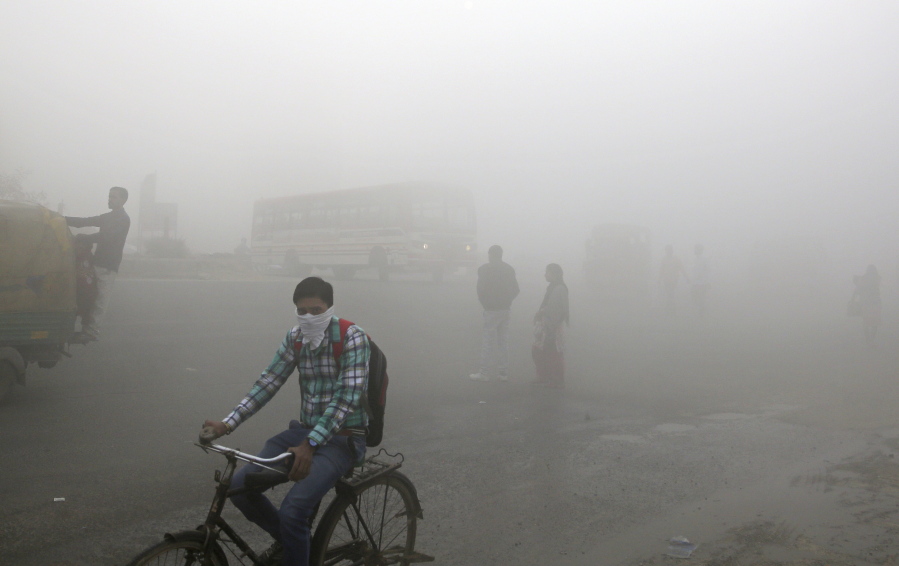NEW DELHI — As thick smog crept over India’s capital this past week and smudged landmarks from view, Nikunj Pandey could feel his eyes and throat burning.
Pandey stopped doing his regular workouts and said he felt tightness in his lungs. He started wearing a triple layer of pollution masks over his mouth. And he became angry that he couldn’t safely breathe the air.
“This is a basic right,” he said. “A basic right of humanity.”
Pandey is among many people in New Delhi who have become more aware of the toxic air in recent years and are increasingly frustrated at the lack of meaningful action by authorities.
This past week the air was the worst it’s been all year in the capital, with microscopic particles that can affect breathing and health spiking to 75 times the level considered safe by the World Health Organization.
Experts have compared breathing the air to smoking a couple of packs of cigarettes a day. The Lancet medical journal recently estimated that some 2.5 million Indians die each year from pollution.
United Airlines suspended its flights between New Delhi and Newark, N.J,. for Saturday and Sunday because of the heavy air pollution in the Indian capital, said Sonia, an airline official who uses one name.
Pandey said the millions of rural folk who have moved to the city understand the problem better than they once did, and are trying everything from tying scarves over their faces to eating “jaggery,” a sugar cane product that some people believe offers a range of health benefits.
Masks once considered an affectation of hypochondriac tourists are these days routinely worn by government workers and regular people on the street.
Volunteers handed out thousands of green surgical masks this week to make a point about the pollution, but such masks likely have a limited impact on keeping out the tiny particles from people’s lungs.
“This is truly a health emergency,” said Anumita Roychowdhury, the executive director of research and advocacy at New Delhi’s Centre for Science and Environment.
She said doctors in recent days have been dealing with a 20 percent spike in emergency hospital admissions from people suffering heart and lung problems. And that’s in a city, she said, where one in every three children already has compromised lungs.
Children suffering
Seema Upadhyaya, who heads a primary school, said she has never before witnessed so many children suffering from respiratory illnesses as she has this year. That has prompted changes to the curriculum.
“It’s impacting everybody,” she said.
Authorities have been taking extraordinary measures to try to mitigate the immediate crisis. They have temporarily closed schools and stopped most trucks from entering the city.
The government put off a decision for rationing car usage starting today as pollution levels started coming down in the city, said Kailash Gahlot, New Delhi’s transport minister.
But everyone agrees such measures don’t address the root causes, which remain hard to solve.



